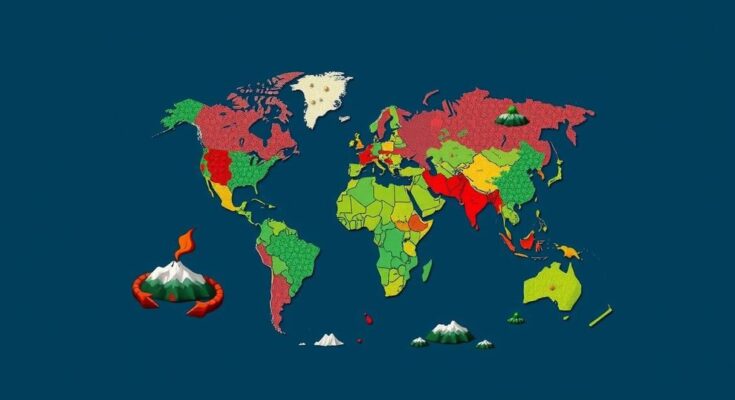Developing nations suffer the worst impacts of climate change, disproportionately bearing the consequences despite contributing minimal greenhouse gas emissions. The COP29 climate talks will focus on the contentious issue of climate finance, particularly who will bear the costs associated with loss and damage. With developed countries historically responsible for the majority of emissions, there is growing pressure for them to fulfil their financial obligations and support adaptation efforts in developing regions.
Developing nations bear the brunt of climate change consequences despite their minimal contributions to greenhouse gas emissions. Since the Industrial Revolution, fossil fuel reliance has increased emissions predominantly from affluent regions, with Europe and North America responsible for approximately 60% of emissions historically. At the climate talks in Baku, Azerbaijan, climate finance will be a central theme, particularly the contentious topic of financial responsibility for loss and damage incurred by poorer nations. This inequitable situation is highlighted by non-industrialized regions like Africa and South America that collectively contribute only 6% to global emissions. The notion of “common but differentiated responsibilities” established in environmental law underscores that while all nations share responsibility to combat climate change, the onus is heavier on those that have historically contributed more. As developing nations face escalating climate-related disasters, they are compelled to dedicate significant portions of their budgets to recovery efforts. For example, the repercussions of recent droughts have severely impacted agricultural outputs in southern Africa. In 2022, floods in Pakistan displaced millions, further straining national infrastructures. These challenges hinder financial resources directed toward sustainable development initiatives and climate adaptation strategies. The formation of the Loss and Damage Fund, agreed upon at last year’s COP meetings, represents a crucial step toward addressing these inequalities. However, funding remains inadequate, and the responsibility for contributing sustainable financial support continues to be a point of contention among wealthier nations. The need for robust financial commitments from developed countries remains paramount, emphasizing the necessity of equitable allocation of resources to facilitate both mitigation and adaptation to climate change effects. Looking ahead to COP29, the discussions surrounding financial contributions must not only match the anticipated annual losses faced by vulnerable nations but also transition from loans to grants in order to alleviate the further economic burden. Historic challenges in securing commitments raise uncertainty about forthcoming outcomes during these negotiations; nonetheless, advocacy efforts from developing nations may prove essential in prompting necessary financial support to combat climate change effects in the Global South.
The ongoing discourse surrounding climate change highlights a significant disparity in accountability for emissions and the resulting impact on nations. Developing countries, despite their minimal contributions to global greenhouse gas emissions, face the harshest consequences of climate change while developed countries, who have historically been major contributors, accumulate wealth at the expense of these nations. International agreements have aimed to address these injustices, but execution remains fraught with challenges. Understanding the complex dynamics between developed and developing nations is crucial in evaluating the mechanisms for climate finance and corrective measures to counteract losses faced by vulnerable populations.
The dire consequences of climate change disproportionately affect developing nations, which require an urgent and equitable solution at COP29. Addressing the imbalance in financial responsibility for climate change impacts and securing adequate funding for loss and damage must be prioritized. Actions resulting from these discussions hold great potential to alleviate the immediate threat posed by climate change, especially in developing regions, and ultimately contribute towards a more just and sustainable future for all.
Original Source: theconversation.com




